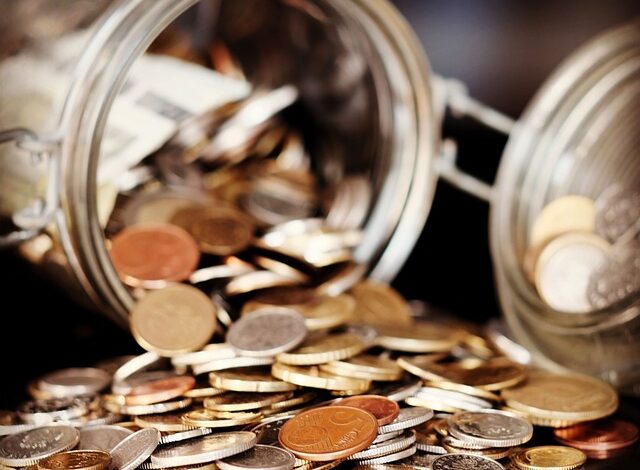Grocery Prices and Best Supermarkets in Italy

Italy, renowned for its rich history, breathtaking landscapes, and delectable cuisine, is also a country where grocery shopping reflects the vibrant culture and lifestyle of its people. Whether you’re an expat, a tourist, or simply someone curious about Italian living, understanding grocery prices and knowing where to shop can make your experience smoother and more enjoyable. In this article, we’ll explore the cost of groceries in Italy, highlight some of the best supermarkets, and provide tips for navigating the local shopping scene.
Understanding Grocery Prices in Italy
The cost of groceries in Italy varies depending on the region, with northern cities like Milan and Turin generally being more expensive than southern areas such as Naples or Sicily. However, one thing remains consistent: Italians prioritize quality over quantity when it comes to food. Freshness, authenticity, and locally sourced ingredients are highly valued, which often translates into slightly higher prices compared to mass-produced goods.
Here’s a breakdown of average grocery prices in Italy (as of 2023):
- Fresh Produce:
- Tomatoes: €2–€4 per kilogram
- Apples: €1.50–€3 per kilogram
- Bananas: €1.80–€2.50 per kilogram
- Dairy Products:
- Fresh milk (1 liter): €1–€1.50
- Eggs (12-pack): €2–€3.50
- Parmesan cheese (1 kg): €15–€30
- Bakery Items:
- Loaf of bread: €1–€2
- Packaged pasta (500g): €0.80–€2
- Meat and Seafood:
- Chicken breast (1 kg): €7–€12
- Beef steak (1 kg): €15–€25
- Fresh fish (varies by type): €10–€30 per kilogram
- Beverages:
- Bottled water (1.5 liters): €0.30–€1
- Coffee (250g ground): €4–€8
While these prices may seem reasonable, keep in mind that organic and specialty products tend to be pricier. Additionally, shopping at smaller neighborhood stores or markets will likely cost more than purchasing from large supermarket chains.
Best Supermarkets in Italy
Italy boasts a wide range of supermarkets catering to different budgets and preferences. From budget-friendly options to premium stores offering gourmet selections, here are some of the top choices:
1. Lidl
- Overview: A German chain that has gained immense popularity across Europe, including Italy. Lidl offers affordable prices without compromising too much on quality.
- Highlights: Great deals on fresh produce, baked goods, and private-label products. They frequently have promotions on seasonal items.
- Best For: Budget-conscious shoppers looking for everyday essentials.
2. Aldi
- Overview: Another German discount retailer, Aldi provides low-cost alternatives to branded products while maintaining decent quality standards.
- Highlights: Competitive pricing, especially for non-perishable items like canned goods, snacks, and beverages.
- Best For: Families and students seeking value for money.
3. Conad
- Overview: One of Italy’s largest domestic supermarket chains, Conad operates under various formats, including Conad Superstore and Conad City.
- Highlights: Wide selection of Italian-made products, including regional specialties. Their loyalty program rewards frequent shoppers.
- Best For: Those who appreciate authentic Italian flavors and want to support local businesses.
4. Esselunga
- Overview: Known for its high-quality offerings and excellent customer service, Esselunga is particularly popular in northern Italy.
- Highlights: Extensive organic section, fresh seafood counters, and ready-to-eat meals. Their Fidaty card offers exclusive discounts.
- Best For: Shoppers who value convenience and premium quality.
5. Coop
- Overview: A cooperative supermarket chain with a strong presence throughout Italy, Coop emphasizes sustainability and ethical sourcing.
- Highlights: Affordable prices, eco-friendly initiatives, and a robust selection of vegetarian and vegan products.
- Best For: Environmentally conscious consumers and those following plant-based diets.
6. Carrefour
- Overview: A French multinational giant, Carrefour operates hypermarkets, supermarkets, and express outlets in Italy.
- Highlights: Diverse product range, competitive pricing, and frequent sales events. Their “Carrefour Bio” line focuses on organic products.
- Best For: One-stop shopping for groceries, household items, and electronics.
Tips for Shopping Smart in Italy
- Shop Local Markets: Farmers’ markets (“mercati rionali”) are abundant in most Italian towns and cities. These markets offer fresh, seasonal produce at reasonable prices and allow you to interact directly with vendors.
- Look for Sales: Many supermarkets run weekly promotions on specific items. Keep an eye out for flyers or digital ads announcing discounts.
- Use Loyalty Cards: Most major chains offer loyalty programs that provide points redeemable for future purchases or exclusive member-only deals.
- Avoid Touristy Areas: Grocery stores near tourist attractions often charge inflated prices. Venture a bit further into residential neighborhoods for better rates.
- Buy in Bulk: Non-perishable items like pasta, olive oil, and canned tomatoes are cheaper when purchased in larger quantities.
- Embrace Seasonality: Eating what’s in season not only supports local farmers but also ensures you get the freshest and most flavorful ingredients at lower costs.



